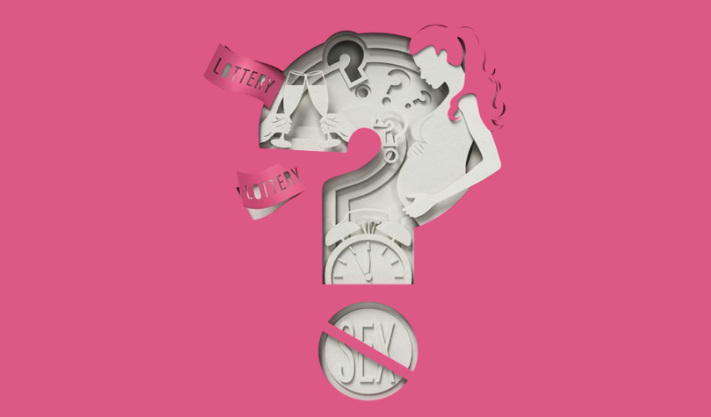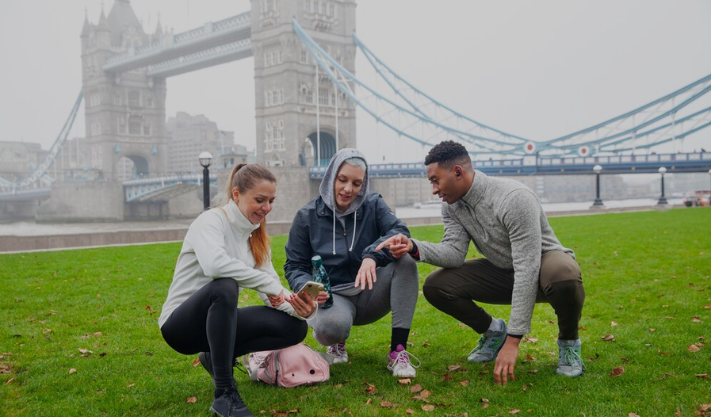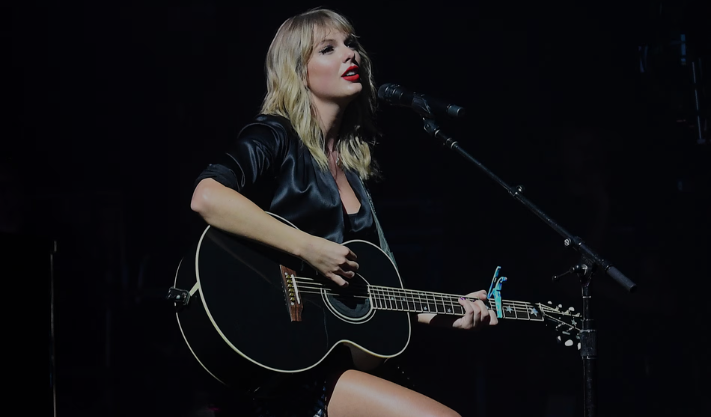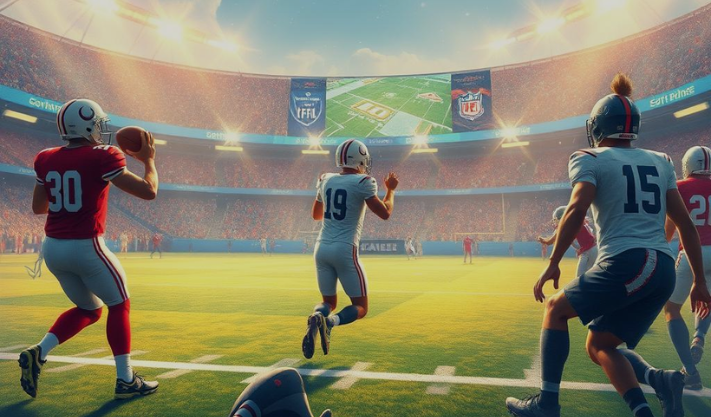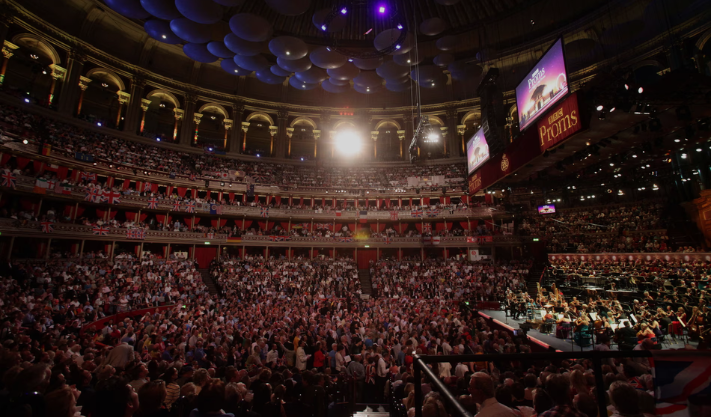The question that changed my life: seven authors talk about the puzzling question that changed everything for them
A simple question changed the lives of seven people, making them choose between having a relationship or a baby, and even think about living without sex.
Do you want a relationship, or a baby?
By Hannah Booth
When I sat down with my therapist that day, we started with some casual conversation to get into the session. There was nothing unusual happening, but that’s the thing with therapy: unexpected things often come up.
For weeks, we’d been talking about the same issue: I was 38, single, and feeling the pressure of time. We figured out that this was the main reason I was feeling unhappy. My therapist had been gently probing, testing my reactions, and offering different options. My mind had been busy with these thoughts in between our sessions.
“Then, she hit me with a question that really shook me. She asked me to think differently: partner first, family second.”
But that day, she seemed more direct than usual. She was getting impatient with my lack of urgency about my life, the time I had left, and the things I wasn’t facing directly. She was concerned that I wasn’t worried enough, and this concern grew as the session went on. Finally, she asked me the big question: “What’s more important to you right now – a relationship or a baby?”
It hit me like a punch, waking me up from my fog. She was asking me to change how I usually think – partner first, family second – because my situation called for it. I had always wanted a child, but I hadn’t admitted it to myself, and I definitely hadn’t said it out loud, because how could I have one without a partner? Her simple question made me say it for the first time. Once I said it, I started to think about having a child on my own. Suddenly, it felt real, not just a distant idea.
That day was like a starting gun: I started looking into donor insemination, and four months later, I was pregnant. I know I was lucky.
Sometimes, I wonder if I would have come to that decision on my own. I like to think so. But I think it’s hard for us to ask ourselves these big questions; it often takes a kind friend, a therapist, or even a stranger. Now, my life – with a 10-year-old daughter – is as joyful and frustrating as anyone else’s. I just took a different path to get here.
Do you really like it?
Jamie Demetriou, actor, co-creator, and star of Stath Lets Flats
The summer before my second year of university, I went to the Edinburgh Festival Fringe with a student comedy group. In September, I came back to my drama degree feeling proud. I was full of confidence from the good comments I took from average reviews and the nights when my friends were in the audience and laughed loudly.
I was really excited because one of our first lessons that year was on Comedy theory and practice. I thought I was going to be so good that my tutor would ask me to tone it down so I didn’t make him look bad. I imagined wearing sunglasses because I was about to be amazing.
“I thought everyone in the room was laughing at how brilliant I was (or at least, that’s what I believed).”
A few weeks into the course, I was at a morning screening of short comedy films we had written and produced. People didn’t seem ready for mine. The biggest laugh came from a visual joke – a shot that looked like I was doing something inappropriate, but was just me shaking a felt-tip pen to get the ink flowing. Ha-ha?
After the screening, my teacher Alex mentioned this moment and asked the class what they thought. Everyone chuckled as they remembered my brilliant moment (I thought). They loved it, didn’t they?
Then my teacher asked me, “Did you like it?”
Like it?! Of course, I liked it! I wrote it! It worked. Everyone laughed. Why was he asking me that?
“Yeah,” I said.
“Why did you like it?” he asked.
It seemed like an easy question, but I couldn’t answer. The real reason was “Because it worked.” I didn’t actually like it. It wasn’t because it was a bit crude, but because it was just a safe idea I’d seen before and used, knowing it would get a reaction. I felt empty.
I had to face the fact that creating something valuable isn’t about just getting a laugh, but about connecting with my own style. That’s where real happiness comes from for me. It seemed crazy that my brain could create something that didn’t reflect my own tastes. But when I was focused on what others might want, that’s exactly what happened.
Fifteen years later, I still struggle with finding the balance between loving an idea and fearing bad feedback. But when I ask myself, “Do you actually like it?”, it’s still a simple but strong way to get back on track.
Do I want to have sex again?
Eleanor Thomas
My boyfriend and I broke up recently because we weren’t having sex. About a year into our relationship, he started leaving the room every time I tried to get undressed – sometimes even when I wasn’t trying to have sex, just putting on my pajamas. I’ve read a lot about men who get upset, and women who pretend to sleep next to them, but in my case, it was the opposite. I would lie in bed pretending to read, but really, I was watching him. I could tell when he was about to put down his phone and turn off the light. I could feel my own hopes hanging between us, and it made me feel embarrassed. I remember my mom suggesting that we have a baby, thinking it would make me lose interest in sex too and give me some control. It’s a sign of how desperate I felt that I thought about it for months, but there was one big problem: how was I supposed to get pregnant?
I spent two years hoping that the lack of sex in my relationship was just a temporary problem. I thought if I focused on having a baby, found a good therapist, or hid how badly I wanted him, my boyfriend would want me again. Eventually, my friend told me it probably wasn’t going to change and asked me to think about this: would I be okay with having sex just once or twice a year for the rest of my life?
For me, the answer was no, so I gave my boyfriend some ultimatums, and we broke up. But even when close friends ask why we’re no longer together, I find it hard to tell the truth. In many ways, we had a good relationship. We were very affectionate and he made me laugh. He would often look at me and mouth “I love you,” and I could tell he meant it, but in a way that felt painful.
“My life had a set pattern, and I’ve broken out of it”
I feel a little embarrassed saying that I ended the relationship for sex, but even in good relationships, desire can fade. Usually, you have a couple of years of great sex and then it slows down to occasional date nights. So I tell people it wasn’t just about sex, but about the deeper emotional issues our lack of sex showed – my boyfriend’s difficulty being vulnerable and committing. But that’s only part of the story. I like sex because it helps me feel close to someone, but I also enjoy it for more selfish reasons. I ended the relationship because I missed the physical act of sex, even if it wasn’t connected to deeper feelings. I missed feeling attractive, receiving compliments, and the excitement of knowing someone desires me. That’s hard to admit.
Now I’m single, and many of my friends are having children, while I’m struggling with my dating profile and having random thoughts about people on the bus. I’ve had sex since the breakup, and some of it felt sad and awkward. Some of it was good, but it still felt a bit lonely and risky. Still, it made me feel free. My life used to follow a certain routine, but now it’s different. I don’t have anyone to watch TV with or cook for, and while I miss that sometimes, my boyfriend and I did a lot of that in the last three years, and it wasn’t enough. I choose sex.
Eleanor Thomas is a pseudonym
Will you still care about this in six months?
Rebecca Liu
Some of the best life lessons I learned came from something that many people made fun of: teen-girl magazines. I liked them because they were fun, glamorous, and full of wisdom. Even boring trips to the supermarket became exciting, as I would say goodbye to my mum in the aisles and rush to the magazine stands to grab the latest issue of magazines like Dolly and Girlfriend, which were popular in Australia and New Zealand, where I grew up. My friends and I would bring them to school, where we’d read them together and take quizzes like “Who’s your famous boyfriend?” (Orlando Bloom or Chad Michael Murray?). The magazines had sections about sex that were covered by a paper seal, but a clever teenager could easily rip it off.
“At their best, these magazines offered real-life advice, written like it was from a wise and cool older sister.”
It wasn’t just gossip, boys, and questionable sex advice. At their best, these magazines gave real life advice, like a wise and cool older sister. There’s one sentence I read a long time ago that stuck with me. The article was about how to handle anxiety (mental health was talked about in these magazines long before it became popular). It said: “Ask yourself: will I still care about this in six months?” That line felt like a big realization to me.
I’ve always worried a lot since I was young. Before going to bed, I would run around checking all the windows to make sure they were shut, scared that someone might break in. Once, when I was seven, I read about local crimes in the newspaper, and I found it hard to leave the house. I didn’t have a good sense of what danger really was. That was the first time I started thinking about it more clearly.
Even now, many years later, I try to ask myself if I’m really in danger whenever I feel unsettled. It’s surprising how often the answer is “no,” even when I feel panic and fear in the moment. It doesn’t fix all my anxiety, but it helps me stop overthinking. As for Dolly magazine, it followed the same path as many others: it stopped printing in 2016. Many people shared their love for it at the time, showing that I wasn’t the only one who valued those magazines. They were always funny, imperfect, and comforting as I grew up.
What would you do if you won the lottery?
Charlotte Northedge
Fifteen years ago, I worked as an editor for a women’s magazine and felt stuck in my life. I had been in the same job for too long and lived in a small flat in London with my boyfriend. Meanwhile, my friends were getting married, having babies, and moving to the suburbs. One day in January, I edited an article about finding new challenges. The magazine focused on psychology, so there were many ideas about this. But one sentence caught my attention: “What would you do if you won the lottery?”
It seemed like a simple question, but it made me think about how it could help people step out of their everyday life and think about what they’d do if money wasn’t a problem. How would you spend your time?
“The question stayed in my mind for weeks. I thought about it on the bus to work, discussed it with friends, and talked about it with my boyfriend.”
On the way home, I thought to myself, “I’d do a master’s degree.” I’d go back to studying—spend my days in the library, reading, thinking, and writing again. When I was younger, I wrote short stories and even started a novel in my 20s. But I had to put it aside when I got my first job because I didn’t have time or energy to write. However, I wondered if studying again could help me get my creativity back.
I couldn’t stop thinking about it for weeks. I thought about it on the bus to work, and talked about it with my friends and boyfriend. They reminded me that I didn’t need to win the lottery to go back to school. I could do a part-time master’s, studying in the evenings while working. The cost of the course wasn’t small, but it could be an investment in my future. I’d have to study on weekends, but I wouldn’t have money for anything else anyway.
In the end, I applied to study a master’s in contemporary literature at Birkbeck, University of London. Instead of watching TV at night or resting on weekends, I studied and wrote essays. After I finished my degree, I used my extra time and new perspective to go back to the novel I had started years before. I worked on it in the evenings while managing my day job, wedding plans, raising two kids, and moving to a bigger house.
My novel, The House Guest, was published in 2021, and a film of my second novel, The People Before, was released last year. Watching actors perform lines I wrote in my bedroom at the cinema was something I never imagined during those long bus rides. I’m sure I wouldn’t have gotten here without that dream of winning the lottery.
In 2005, I went to San Francisco to interview a band for NME. I don’t remember which band because I had done so many interviews that they all started to feel the same, with jet lag and alcohol blurring everything together.
I rarely got much sleep on these trips. Still, I would arrive in my hotel room around 2 a.m. and set an alarm for 5 a.m. Why? So I could take an early morning walk around the city and still make it back in time for my 10 a.m. taxi to the airport.
I walked to Union Square, rushed through Chinatown, climbed the hills of Lombard Street, and then set off on a long walk to the Golden Gate Bridge, getting there around 7:30 a.m. I thought, “That looks nice,” before quickly turning around to head back.
“In 2018, after being diagnosed with a rare blood cancer, I asked myself a question that made me rethink how I spent my time.”
This reflects how I lived my 20s: always feeling the urge to take in as much of the world as I could. I was obsessed with experiencing everything, but I started to wonder if I was truly living it or just checking things off a list.
The turning point came in 2018 after I was diagnosed with a rare blood cancer. I asked myself, “If I get more time, how do I want to spend it?”
The answer came to me right away: I wanted to spend more time with the people I loved most. Everything else – work, travel – seemed less important. In fact, all the rushing around the world felt almost pointless. Who was I doing it for? What did it really achieve? After my diagnosis, many people talk about making a bucket list. I made an “anti-bucket list” instead – a list of things I no longer wanted to do because I’d rather be sitting with my kids, watching Bluey.
I don’t regret those years. No one regrets not staying in bed instead of visiting the Golden Gate Bridge. I appreciate the energy I had to grab those incredible opportunities, and I know it’s still there sometimes. But seven years later, with my health stable, I’ve realized it’s not possible to do everything. Sometimes, it’s better to just sit with your family and truly enjoy the moment.
Do you really like this man??
Tanya Gold
I got to almost 40 without living with a man. I was avoidant: that is a poised word for scared, and I depend on poised words. I had a bad relationship with my father – I choose my words carefully, for legal reasons and from shame – and grew up with the powerful, though unacknowledged, idea that I was, among other things, incurably unlovable. I didn’t know I felt that way, so I couldn’t also know that it is not normal to feel this way. I thought all women were like me: unworthy and afraid. I thought all women subsisted on casual sexual encounters and drank to blackout, or, if they didn’t, they should. Anything else was alien, and weird: almost pitiable.
After I stopped drinking, and self-murder was closed to me, I subsisted on emotionally unavailable men, because they are an infinite resource and ask nothing of you. I still thought pain was love, but I was sober and older, and my loneliness was growing.
I wanted a child and the things that other people have. I ran into a man I had known since university, and his gentleness – his calmness and kindness – touched something inside me. We started a relationship that surprised me more because it lasted than because of how strong it was. I kept wondering, why does he stay with me? If he stays, does it mean I have to leave? Eventually, we got engaged, but I still complained about him: his regular habits and needs. I had never really thought about anyone else before because I never had to when I dated people who were emotionally distant or not real. Then, one evening at dinner, a smart friend asked me: “Do you truly like this man?”
“Was it okay for me to like someone, or was I being controlled by invisible forces that made me leave against my will.”
It was like a challenge to my mind, which had spent the last twenty years pushing love away. Did I? Could I? I was on my usual path – leaving! – but the question made me stop and think. Did I like him? Was it okay to like someone, or was I being forced to leave by something I couldn’t see?
I thought about her question and realized I did like him. I liked his kindness, his appearance, his unique way of thinking, and his shyness. I liked his cooking. I liked that he said he loved me, and I believed him. Since I liked him, I decided to stay, and I did. We got married, had a child, and I’m still learning to balance my tendency to live in my own world with the real world. Her question didn’t change anything, but it helped me see things more clearly. However, I could never have asked that question myself.
Published: 10th January 2025
Also Read:
UK permanent job openings decline at fastest rate in 4 years
Coffee boosts health, but only if consumed in the morning
Wolford apologizes for delays in order and refund processing

